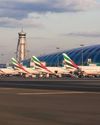Despite a dramatic economic slowdown, Chongqing’s foreign businesses are undeterred

A forest of skyscrapers blocks the mountain views from both sides of the emerald Yangtze River that snakes through Chongqing, a second-tier city of more than 30 million people in central-western China. From here, throngs of tourists clamber aboard cruise ships headed for the Three Gorges Dam, the world’s largest hydropower project and an undeniably awe inspiring feat of humanity harnessing nature.
The dam, more than 600 kilometres away in neighbouring Hubei province, has done more than put Chongqing on the bucket lists of domestic sightseers. It also supplies the landlocked city with unlimited green energy and allows oceangoing ships to access its river port. The dam’s completion, improvements in road and rail connections to the rest of China and beyond, and government initiatives to spur growth in western and central China have all led to a flurry of direct foreign investment over the past 20 years.
At one point Chongqing was one of the fastest-growing cities in the world, with double-digit GDP growth for 15 consecutive years from 2002, peaking at just over 17 per cent in 2010. In 2018, however, the city missed its 8.5 per cent growth target by a long shot, clocking up just 6 per cent, thus relegating it to the realms below the national average of 6.6 per cent. On a list of the country’s fastest growing regions compiled by China’s National Bureau of Statistics, Chongqing has dropped from first place in 2016 to 24th last year.
Of course, that still puts Chongqing on a par with 2018’s fastest-growing US state, Texas. But given China’s breakneck development, can Chongqing still claim to be a viable investment for foreign companies, especially compared to first-tier business havens such as Beijing, Shanghai and Guangzhou, on China’s affluent east coast?
Diese Geschichte stammt aus der July - August 2019-Ausgabe von Business Traveller Middle East.
Starten Sie Ihre 7-tägige kostenlose Testversion von Magzter GOLD, um auf Tausende kuratierte Premium-Storys sowie über 8.000 Zeitschriften und Zeitungen zuzugreifen.
Bereits Abonnent ? Anmelden
Diese Geschichte stammt aus der July - August 2019-Ausgabe von Business Traveller Middle East.
Starten Sie Ihre 7-tägige kostenlose Testversion von Magzter GOLD, um auf Tausende kuratierte Premium-Storys sowie über 8.000 Zeitschriften und Zeitungen zuzugreifen.
Bereits Abonnent? Anmelden

Onwards and upwards
In an exclusive interview with Ian Fairservice for Business Traveller, His Highness Sheikh Ahmed bin Saeed Al Maktoum, President of the Dubai Civil Aviation Authority and CEO and Founder of the Emirates Group, provides insight into the current and future state of travel and Emirates’ pivotal role in getting the industry back on track

Cleaning up the crisis
How hotels have risen to the challenge of keeping guests safe during the pandemic

The Great Vegas Meetings Magic Act
The city is working hard to conjure up events and make millions of visitors reappear

TAKES OFF
Corporations are seeking new travel solutions that put safety and convenience first

TEE TIME IN TOKYO
The Tokyo Olympics may be delayed, but the golf courses around Japan’s capital aren’t slowing down

KEYS TO THE KINGDOM
New and upcoming hotels to check out when you next visit Saudi Arabia

QATAR CALLING
A swathe of hotels are opening in the Gulf State in the run-up to the 2022 FIFA World Cup

MEMPHIS CON BRIO
Music and history flood through the heart and soul of this quintessential American river town

Sofitel Mumbai BKC
BACKGROUND Sofitel Mumbai BKC is one of Accor’s most prominent addresses in Mumbai, Maharashtra. The French hospitality group’s other hotels in the city are operated under the Novotel and ibis brands.

Taking Scotland in Stride
A walk through the Highlands and Borders is the best way to touch this country’s history and nature